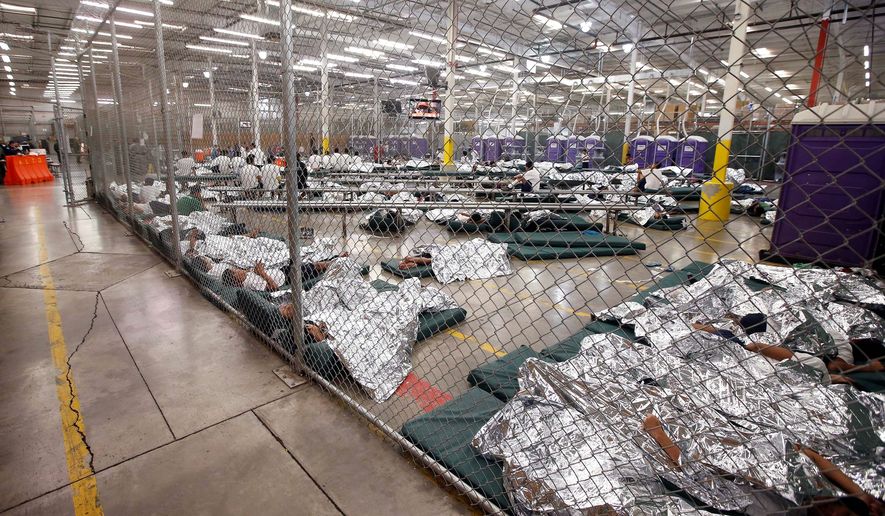Communicable diseases continue to be a problem at the New Mexico facility built to house illegal immigrant families surging across the U.S.-Mexico border, and the immigrants themselves aren’t taking their own health care very seriously, according to an audit released Monday.
While the Border Patrol is doing a good job of handling the surge of illegal immigrant children traveling alone without their parents, the families who are being housed at a special facility continue to have health problems and trouble using the bathroom, the Homeland Security inspector general said.
“Family unit illnesses and unfamiliarity with bathroom facilities continued to result in unsanitary conditions,” Inspector General John Roth wrote in a memo to Homeland Security Secretary Jeh Johnson.
Mr. Roth said the illnesses — which put the facility in Artesia, New Mexico, on lockdown earlier this year, preventing any immigrants from being transferred in or out — have proved to be a continuing problem.
Part of the issue is the immigrants themselves, some of whom have never seen a doctor before, don’t follow up afterward, either for themselves or their children.
“If detainees do not attend sick call or stand in line to receive daily medications, they remain sick and their illnesses tend to get worse,” the inspector general said.
PHOTOS: See Obama's biggest White House fails
The inspector general has been reviewing how U.S. Customs and Border Protection (CBP), a part of the Homeland Security Department, has handled the surge of children that began to spike earlier this year.
Immigrant-rights groups had filed dozens of complaints arguing children had been physically or verbally abused by agents and officers, but the inspector general has not yet been able to substantiate any of those complaints and said in its own random interviews it hasn’t uncovered any new complaints about wrongdoing.
The surge of children has dropped dramatically, from about 10,000 a month in May and June down to a little more than 3,100 in August — and the numbers appear to have remained low in September, the inspector general said.
The Department of Homeland Security didn’t provide a comment on the latest report, which is the third one the IG has issued since the surge of children.
Investigators said with the drop in the number of children, the Border Patrol is processing those that are arriving much faster. Most are turned over to the Department of Health and Human Services within 6 hours, or well ahead of the 72-hour deadline set by federal law.
Conditions have improved so much that the IG said it was scaling back its investigations, though it could ramp up again if apprehensions go up or if new, credible allegations of abuse come to light.
PHOTOS: Child stars: Then and now
The one hiccup the investigators did find is that some CBP officers at one facility weren’t trained in how to segregate immigrant children with communicable diseases. CBP officials said they would make sure to assign trained officers whenever there were unaccompanied children at that facility.
Previous reports had detailed some of the difficulties of handling the surge, including the communicable diseases some brought, such as scabies, lice or chickenpox.
And investigators found “unfamiliarity” with bathrooms resulted in unsanitary conditions, including “exposure to human waste.”
Volunteers who have been at some of the facilities have reported that the children and families would often try to throw used toilet paper away, rather than flush it down the toilet.
• Stephen Dinan can be reached at sdinan@washingtontimes.com.




Please read our comment policy before commenting.